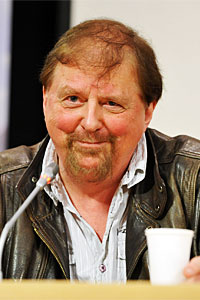In 20 years of writing about Russia's President Vladimir Putin -- he was completely obscure before 1999 -- I have never before had reason to mention him and Saint Thomas à Becket in the same sentence. Finally, however, the time has come.
Finnish President Sauli Niinistö phoned the diminutive Russian strongman at the behest of German Chancellor Angela Merkel last Thursday and assured him that he was not a suspect in the poisoning of opposition leader Alexei Navalny. The goal, of course, was to persuade Mr Putin to let Mr Navalny be flown to Germany for treatment.
Niinistö is clearly a persuasive man, because Mr Putin agreed. (Did Mr Putin know how long various poisons remain in the body? Hard to say. He was only in the KGB for 16 years.) Indeed, Mr Putin even promised to "get the rat behind this". Which sounds a bit like a Cosa Nostra godfather on a bad day, but at least the man wants to see justice done.
So you can see why the late Thomas à Becket, Archbishop of Canterbury, sprang instantly to my mind. Mr Putin's position is rather similar to that of England's King Henry II, who ordered the assassination of that martyred cleric by accident, so to speak, and was then covered by shame and regret for his murder (or so he subsequently claimed).
It was in 1170, and Thomas à Becket was being difficult. He was the head of the Church in England, and he was resisting the king's attempt to make the Church courts subordinate to the civil courts, which answered to Henry. It's a bit of a stretch, but you could say that Archbishop Becket was the closest things in 12th century England to the leader of the opposition.
Henry II was used to getting his way, and in the course of one of his rants against the cleric he was heard to say "Who will rid me of this meddlesome priest?" Four knights at the court, hearing this, decided that the quickest way to rise in the king's service was to go to Canterbury and carry out the king's bidding.
They found Thomas à Becket on the altar of his cathedral, in front of a large congregation, and hacked him to pieces with their swords. This caused a great outcry throughout Christendom, and the knights did not get their promotions. Indeed, the king swore that it had all been a ghastly misunderstanding.
It was all smoothed over, as these things usually are. The knights fell into disgrace, the Church's law courts kept their independence, and the king did penance: he walked barefoot wearing sackcloth through the streets of Canterbury while eighty monks flogged him (gently) with branches.
Could something similar have happened in Russia last week? It won't end up with Mr Putin barefoot being flogged by monks, of course, but maybe his minions just exceeded their instructions? After all, that was Saudi Crown Prince Muhammad bin Salman's excuse when his henchmen chopped up journalist Jamal Khashoggi in the Saudi embassy in Istanbul two years ago, and no government has officially questioned MbS's word on that.
The problem in Mr Putin's case is that this is not the first time: becoming the leader of the opposition in Russia automatically invalidates your life insurance policy. Mr Navalny's predecessor Boris Nemtsov was shot dead within sight of the Kremlin five years ago, and Mr Navalny himself is partially blind in one eye as the result of a 2018 attack.
Moreover, poison is a favourite tool of Mr Putin's security services. Critical journalist Anna Politkovskaya survived a poisoning attempt in 2004 (she was later shot dead). Defector Alexander Litvinenko was poisoned with polonium in London in 2006. Double agent Sergei Skripal and his daughter nearly died from a nerve agent in Salisbury, England in 2018, and the Russian would-be assassins were caught on CCTV.
Maybe the boss doesn't sign off personally on each of these attacks, but it is hard to believe he doesn't know what is going on. The Russian counter-claim that all these incidents are actually "provocations" staged by hostile Western intelligence services is implausible: Russia is not important enough to justify the scale of the effort that would be required.
So what we are left with is smaller than it sometimes seems. It's a great state that has fallen into the hands of crooks in suits -- no longer shiny suits; sartorial standards among the Russian criminal aristocracy have risen -- who occasionally rub somebody out to protect their nationwide protection racket or just to maintain discipline within the organisation. And they only kill other Russians.
Gwynne Dyer is an independent journalist whose articles are published in 45 countries. His latest book is 'Growing Pains: The Future of Democracy (and Work)'.
